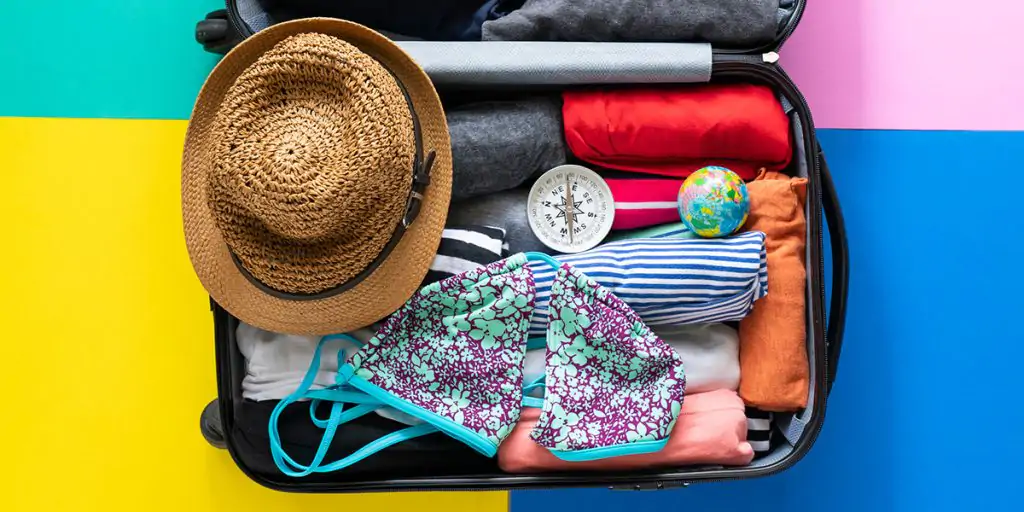Travel is an excellent way to stay young at heart, no matter what age is listed on your passport (don’t worry, we won’t tell anyone.) But as we get older, travelling can become uncomfortable.
We’ve put together this guide for making travel a more comfortable experience. With tips for planning, packing, flying, and sightseeing, we have you covered…
1) Know when to go on holiday
Do your research before booking a trip, and figure out the best time of year to visit your chosen destination.
Extreme weather can be uncomfortable, so look at average temperatures and rainfall for each month before booking.
If you’re retired and can travel whenever you want, it’s smart to book during the shoulder seasons (between peak and off-peak seasons), when the weather tends to be cooler and popular destinations are less crowded. In Europe, this is generally April to mid-June, or September to October.
2) Get the right travel insurance
With some holiday insurance providers and bank or building societies’ policies having tight upper age limits, it can feel tough finding a good policy when you’re a certain age. Do some research to find a policy that covers all your needs, check what is included, and don’t cut costs. It’s better to be covered for every eventuality than to find yourself stuck with no one to turn to!
Top Tip: make a note of your travel insurance contact details in your mobile phone and keep your policy number in your wallet so it’s with you at all times. If you have any existing conditions, you could also carry your doctor’s contact details in case any overseas caregivers need any clarification.
3) Pack all necessary medicines
Pack all your medicines in your hand luggage, just in case anything happens to your hold luggage. Be sure to include all prescription information and supplies needed to take the medication, and pack everything together in a clear plastic bag to make getting through security easier.
Pack extras of everything, and carry more than you normally need so that you’re fully prepared in case of changed plans or unexpected delays. Before you leave, ask your doctor for a list of the generic names of your medications, as some brand names won’t be available overseas so you may need to ask for the generic name instead.
If you wear a hearing aid, make sure you bring spare batteries, as it can be difficult to find a specific size abroad. Carry an extra pair of glasses if you wear them. A magnifying glass can also be useful for reading the small-print of schedules, road maps, and tickets.
Top Tip: research medical facilities at your destination in advance, and take a note of where the nearest hospitals and English-speaking medical facilities are. If in doubt, your travel insurance provider should be able to help signpost you in an emergency.
4) Make airport arrangements in advance
All airports offer cart or buggy rides for passengers with disabilities or who need extra assistance. You may also be able to book a wheelchair for use within the terminal. Contact the airport in advance to find out how to arrange this. You can also contact your airline or travel company if you need any extra assistance such as early boarding, assistance with embarking or disembarking the plane, or special seating.
Top Tip: wear easy-to-remove shoes as many airports will ask you to take them off at security.
5) Fly like a pro
Book your flights early to reserve aisle or exit row seats for extra legroom, or splurge on an Economy Plus (sometimes called Premium Economy) or First Class seat for a more comfortable experience. Contact your airline if you have any specific requirements.
Stay hydrated by drinking plenty of water throughout the flight, and avoid drinking too much alcohol or caffeine as these can dehydrate you. Tempting though that first holiday drink might be, it’s best to skip alcoholic drinks altogether on a flight; the altitude can make alcohol act much faster.
Take a moisturiser on longer flights to stop your skin from drying out. Your skin will thank you.
Finally, take regular walks throughout the flight to keep your blood flowing and to stop your muscles from cramping up. There are several exercises you can do on a flight to keep your body active – so you won’t arrive feeling stiff and tired.
6) Book airport pick-up
Nothing feels quite as welcoming when arriving at a foreign airport as a sign with your name on it. Booking an airport pickup which will meet you inside the airport is a great way to take all the stress out of arriving.
Your driver will help you navigate the airport and help with your luggage, so all you have to do is sit back and relax until you’re dropped at your hotel!
7) Download the right apps
If you have a smartphone, you may find it can make travel a lot easier! Look up the local taxi app for your destination before you travel (Uber, Grab, and My Taxi are common ones), download it, and set up an account. Digital taxi apps are the easiest way to get around a foreign city, and you’ll never be ripped off by a taxi driver again!
Other useful apps to download include the XE Currency app so that you always know the exchange rate – it will update automatically every time you connect to WiFi. There’s also MAPS.ME, an offline alternative to Google Maps. Download the map for your destination before your trip and you’ll always have access to a digital map, even when you can’t access the internet.
Top Tip: Don’t forget to turn off data roaming if you’re travelling outside of the EU, otherwise you could face some pretty hefty charges to your phone bill (depending on your provider) when you return.
8) Wear loose clothing
Wear comfortable and loose clothing when you travel. Not only does this make travelling more comfortable, but it will lower your risk of heat stroke in hot destinations, as well as lowering the risk of hypertension and high blood pressure. Loose clothing also reduces the risk of blood clots when sitting or standing for long periods of time, such as on a flight or long train journey.
Top Tip: wear compression socks on long flights, to help stimulate circulation in your lower legs.
9) Don’t miss any senior discounts
Many tourist attractions around the world, such as museums and tours, offer a senior discount – as do most public transport systems.
Always ask about discounts, even if you can’t see any information displayed. If you’re travelling to a non-English-speaking country, learn the phrase for requesting a discount (or keep it written down) so that you always get the best price. Alongside the discounts, there may also be additional assistance for those with mobility issues, so ask if you need any extra help.
10) Plan a suitable itinerary
Although it’s often tempting to try to see and do everything in a new destination, this can be exhausting – no matter your age! Don’t try to fit too much into each day, and plan an itinerary with plenty of breaks and downtime. You’re on holiday after all!
Do some research in advance and work out which attractions you really want to see, and where they all are, so you don’t end up walking for miles between each sight. Consider booking a sightseeing tour with a local driver, or a hop-on hop-off bus, so that you can see a lot without over-doing it.
If you’re visiting more than one destination on the same trip, make sure to have a few days between each travel day to avoid feeling rushed. Try to avoid travelling in the evening or at night, especially if someone in your party has any form of dementia as this time of day can increase disorientation.
Top Tip: try sightseeing later in the day for fewer crowds and cooler temperatures!
11) Maintain a familiar schedule
Where possible, try to maintain a predictable and familiar daily routine. Planning your schedule to keep mealtimes, rest stops, medication schedules and bus times as consistent as possible can help reduce stress and make travel that bit easier.


